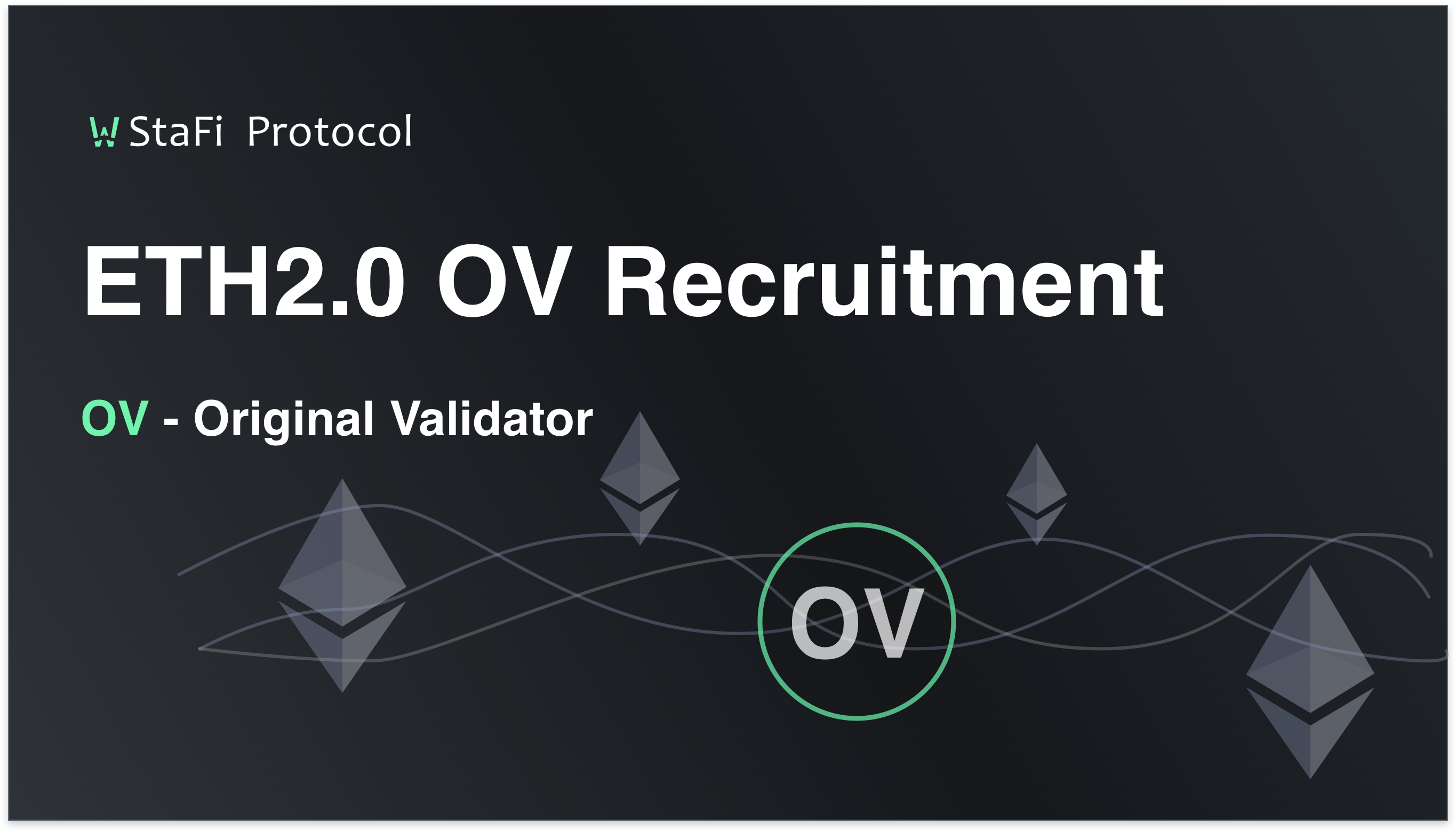
StaFi rETH Validator Recruitment Campaign
Add to Watchlist
Added to Watchlist
Reward pool
Not set
equal in FIS
Expected profit
Unknown
equal in FIS
Max participants
∞
No limit
DropsEarn score
Neutral
Normal, Low Risks

Details
rETH is coming soon
StaFi’s ETH2.0 staking liquidity solution rETH willd help the ETH2.0 stakers solve the delegation and liquidity problem of their staked ETH assets. With rETH product, Stakers will be able to stake freely in the ETH2.0 ecosystem. More importantly, the minimum Staking amount will be lowered to 0.01 ETH instead of the 32 ETH required by the ETH2.0 staking network. The rETH tokens which are minted to stakers after staking can be traded immediately on a DEX like Uniswap. For detailed information of the rETH solution, you can check the rETH white paper.
Team will launch the rETH product in the next few days, and any ETH2 validator is welcome to join the StaFi rETH OV program. If you have any questions, please join the rETH OV Telegram group.
Introduction of rETH OV
In rETH, Original Validators specifically refer to the Ethereum 2.0 validators who have joined the StaFi rETH OV program and run nodes for the funds in rETH Staking Pool.
How to Onboard
The following three requirements apply to a rETH OV:
1) Run an ETH2.0 node.
2) Deposit 8ETH to the Mini Staking Pool of rETH.
3) When 24 ETH are automatically allocated to the same address, OV should upload the deposit_data-*.json file generated by the validator client in rETH validator dashboard.
After completing the above three steps, you will officially become an OV in rETH. An OV can deposit more ETH in order to run multiple nodes simultaneously (8*N, where N refers to the number of validators planning to operate) .
P lease check: rETH Original Validator Onboard Guide.
Why Should You Join
There are 4 main reasons why you should consider joining in rETH Original Validator Campaign:
1) No KYC and Permission Required
Any Eth2.0 validator, no matter whether you are a personal validator or an institutional validator, can join in to be an OV in rETH freely without any KYC or permission.
2) Higher APY
The OV’s staking profits will be 23.50% higher than totally self-funding the 32 ETH, so that the APY of ETH staking for OVs will be around 13.59% in the current stage. Please check the OV APY calculation table for details.
3) Competent Liquidity
StaFi rETH designs a liquidity solution for OV’s deposits and rewards. rETH OV can redeem 2 or 4 ETH per node.
4)Slash Insurance
StaFi will cooperate with Nexus Mutual, Tidal and other DeFi insurance protocols to provide slash insurance for OVs. Also, StaFi will establish an insurance fund pool to compensate the slash loss over 8 ETH per node.
Reference
- rETH Solution
- rETH Audit report
- rETH OV Q&A
- Original Validator Testing Guide
- Staker Testing Guide
- rETH OV Telegram
About StaFi Protocol
StaFi is the first DeFi protocol unlocking liquidity of staked assets. Users can stake PoS tokens through StaFi and receive rTokens in return, which are available for trading, while still earning staking rewards. FIS is the native token on StaFi Chain. FIS is required to provide security to the network by staking, pay for transaction fees on the StaFi chain, and mint & redeem rTokens.
Social Networks
About
In the rETH solution, StaFi needs a large number of ETH2 validators to join in the Original Validator program to run the ETH2 nodes with the allocated stakers’ funds.
Activity Type
Date
from 26 Jan 2021 12:00(UTC+3)
Registration
Closed
When Reward:
None
Event Status
Links

